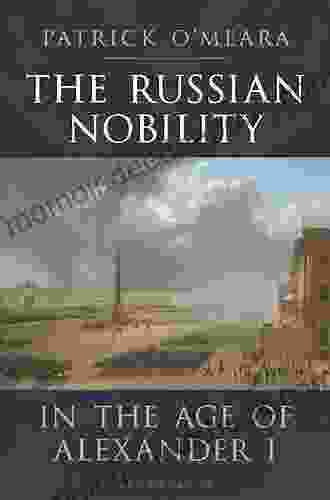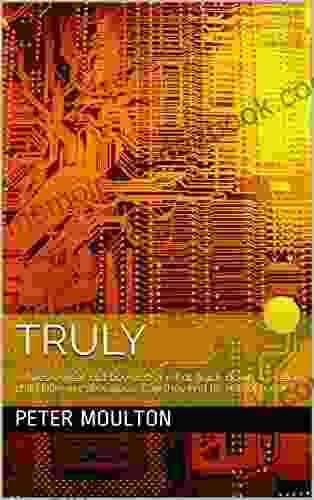The Russian Nobility in the Age of Alexander: A Study in Elite Formation and Transformation

The reign of Alexander I (1801-1825) marked a significant turning point in the history of the Russian nobility. Under Alexander's rule, the nobility underwent a series of profound transformations that would have a lasting impact on its social, political, and economic role in Russian society. In this article, we will explore the various factors that contributed to these transformations and examine their impact on the Russian nobility in the Age of Alexander.
The Old Russian Nobility
Before the reign of Alexander I, the Russian nobility was a complex and stratified social group. The top layer of the nobility, known as the boyars, had emerged during the Kievan Rus period (882-1240) and enjoyed considerable political and economic power. Over time, the boyars were joined by other noble families, including the princes (knyazes) and the gentry (dvoriane). The gentry, in particular, grew in importance during the 17th and 18th centuries as they acquired land and serfs through military service and imperial patronage.
4.3 out of 5
| Language | : | English |
| File size | : | 9187 KB |
| Text-to-Speech | : | Enabled |
| Screen Reader | : | Supported |
| Enhanced typesetting | : | Enabled |
| Print length | : | 401 pages |
The old Russian nobility was a conservative force in society. They were resistant to change and clung to their traditional privileges and values. However, the reign of Alexander I would challenge the old order and force the nobility to adapt to a new era.
Alexander's Reforms
Alexander I ascended to the throne in 1801 with a vision of modernizing and reforming Russian society. He believed that the nobility had a key role to play in this process and set out to implement a series of reforms designed to strengthen and transform the elite.
One of Alexander's most significant reforms was the creation of the Ministry of Internal Affairs in 1802. The ministry was responsible for overseeing the administration of local government and would play a major role in managing the nobility's affairs. Another important reform was the establishment of the Council of State in 1810. The council was a consultative body that advised the emperor on matters of policy and included a number of noble representatives. These reforms gave the nobility a greater voice in government and helped to integrate them into the imperial bureaucracy.
In addition to these administrative reforms, Alexander also implemented a number of measures designed to improve the education and training of the nobility. He founded several new universities and academies and expanded the curriculum to include modern subjects such as science, technology, and economics. He also encouraged young nobles to travel abroad to study and experience different cultures. These reforms helped to create a new generation of nobles who were better equipped to serve the state and adapt to the changing demands of the 19th century.
The Napoleonic Wars
The Napoleonic Wars (1803-1815) had a profound impact on the Russian nobility. The wars exposed the weaknesses of the old order and forced the nobility to mobilize to defend the empire. The war effort also provided opportunities for social advancement and economic gain for those nobles who distinguished themselves in battle.
The most famous example of a noble who rose to prominence during the Napoleonic Wars is Mikhail Illarionovich Kutuzov. Kutuzov was a veteran of the Russo-Turkish War (1787-1792) and the Napoleonic Wars, and he played a key role in the Russian victory over Napoleon at the Battle of Borodino in 1812. Kutuzov's success earned him the respect of the emperor and the admiration of the Russian people. He was made a prince and field marshal and became one of the most celebrated heroes of the Russian nobility.
Other nobles who distinguished themselves in the Napoleonic Wars include Alexander Suvorov, Peter Bagration, and Denis Davydov. These men all rose to high ranks in the army and were awarded prestigious military honors. Their success demonstrated that the nobility was still capable of producing выдающиеся leaders in times of crisis.
The Decembrist Revolt
The Decembrist Revolt was a failed uprising by a group of young noble officers in 1825. The Decembrists were inspired by the ideas of the Enlightenment and sought to establish a constitutional monarchy in Russia. Their revolt was brutally suppressed by Alexander's successor, Nicholas I, but it had a profound impact on the Russian nobility.
The Decembrist Revolt revealed the growing dissatisfaction among the younger generation of nobles with the autocratic rule of the emperor. It also demonstrated that the nobility was no longer a monolithic bloc and that there were significant divisions within the elite. The uprising led to a tightening of control over the nobility by the state and a crackdown on dissent.
The reign of Alexander I was a watershed moment in the history of the Russian nobility. Under Alexander's rule, the nobility underwent a series of profound transformations that would have a lasting impact on its social, political, and economic role in Russian society. The old order was challenged and the nobility was forced to adapt to a new era. The Napoleonic Wars and the Decembrist Revolt further weakened the traditional authority of the nobility and led to a redefinition of its role in Russian society. By the end of Alexander's reign, the nobility was a more modern, educated, and professionalized elite, but it had also lost some of its former autonomy and influence.
Image Alt Tags
* Alexander I of Russia - Portrait of Alexander I of Russia, the emperor who reigned during the Age of Alexander. * Russian noblemen - A group of Russian noblemen in traditional dress, representing the elite of Russian society in the Age of Alexander. * Battle of Borodino - A depiction of the Battle of Borodino, a key battle in the Napoleonic Wars where the Russian nobility played a significant role. * Decembrist Revolt - A representation of the Decembrist Revolt, an uprising by young noble officers that challenged the autocratic rule of Alexander's successor, Nicholas I.
4.3 out of 5
| Language | : | English |
| File size | : | 9187 KB |
| Text-to-Speech | : | Enabled |
| Screen Reader | : | Supported |
| Enhanced typesetting | : | Enabled |
| Print length | : | 401 pages |
Do you want to contribute by writing guest posts on this blog?
Please contact us and send us a resume of previous articles that you have written.
 Text
Text Story
Story Genre
Genre Reader
Reader Library
Library Paperback
Paperback E-book
E-book Magazine
Magazine Newspaper
Newspaper Paragraph
Paragraph Shelf
Shelf Glossary
Glossary Bibliography
Bibliography Foreword
Foreword Preface
Preface Annotation
Annotation Footnote
Footnote Manuscript
Manuscript Library card
Library card Narrative
Narrative Autobiography
Autobiography Memoir
Memoir Reference
Reference Thesaurus
Thesaurus Resolution
Resolution Librarian
Librarian Catalog
Catalog Card Catalog
Card Catalog Stacks
Stacks Archives
Archives Periodicals
Periodicals Study
Study Research
Research Lending
Lending Journals
Journals Interlibrary
Interlibrary Study Group
Study Group Awards
Awards Book Club
Book Club Textbooks
Textbooks Ali Wood
Ali Wood Rebecca Wells
Rebecca Wells David Conger
David Conger Peter Uwe Hohendahl
Peter Uwe Hohendahl Alfred De Zayas
Alfred De Zayas Leil Lowndes
Leil Lowndes Ricky Schneider
Ricky Schneider Morton Manus
Morton Manus Richard L Muehlberg
Richard L Muehlberg John Ericson
John Ericson Thomas G Mahnken
Thomas G Mahnken Karoline Dahrling Hughes
Karoline Dahrling Hughes Juan Reyes
Juan Reyes Antony Barone Kolenc
Antony Barone Kolenc Pieter Waterdrinker
Pieter Waterdrinker Marta Williams
Marta Williams Michael Stachowitsch
Michael Stachowitsch Sophie Cameron
Sophie Cameron Bernie Sanders
Bernie Sanders Frank Molloy
Frank Molloy
Light bulbAdvertise smarter! Our strategic ad space ensures maximum exposure. Reserve your spot today!

 Kenneth ParkerImmerse Yourself in the Beauty of Forest and Sea: A Visual Journey with Photo...
Kenneth ParkerImmerse Yourself in the Beauty of Forest and Sea: A Visual Journey with Photo...
 Ethan MitchellThe Ultimate Study Guide to Joseph Heller's Catch-22: A Classic of Wartime...
Ethan MitchellThe Ultimate Study Guide to Joseph Heller's Catch-22: A Classic of Wartime... Brennan BlairFollow ·10k
Brennan BlairFollow ·10k Ralph Waldo EmersonFollow ·5.9k
Ralph Waldo EmersonFollow ·5.9k Mason PowellFollow ·5.3k
Mason PowellFollow ·5.3k Cason CoxFollow ·8.6k
Cason CoxFollow ·8.6k Jerry HayesFollow ·8.8k
Jerry HayesFollow ·8.8k Patrick HayesFollow ·9.7k
Patrick HayesFollow ·9.7k Warren BellFollow ·9.9k
Warren BellFollow ·9.9k Henry JamesFollow ·11.4k
Henry JamesFollow ·11.4k

 Vernon Blair
Vernon BlairHow to Get a Woman to Pay for You: A Comprehensive Guide...
In the modern dating...

 Levi Powell
Levi PowellPrinciples and Theory for Data Mining and Machine...
Data mining and machine learning are two...

 Andrew Bell
Andrew BellMirrors For The Mind: Milestones In Discovery And...
Mirrors have been a part of human history...

 Alec Hayes
Alec HayesDelving into Natural Language Processing with Java and...
Natural Language Processing (NLP) is an...
4.3 out of 5
| Language | : | English |
| File size | : | 9187 KB |
| Text-to-Speech | : | Enabled |
| Screen Reader | : | Supported |
| Enhanced typesetting | : | Enabled |
| Print length | : | 401 pages |












